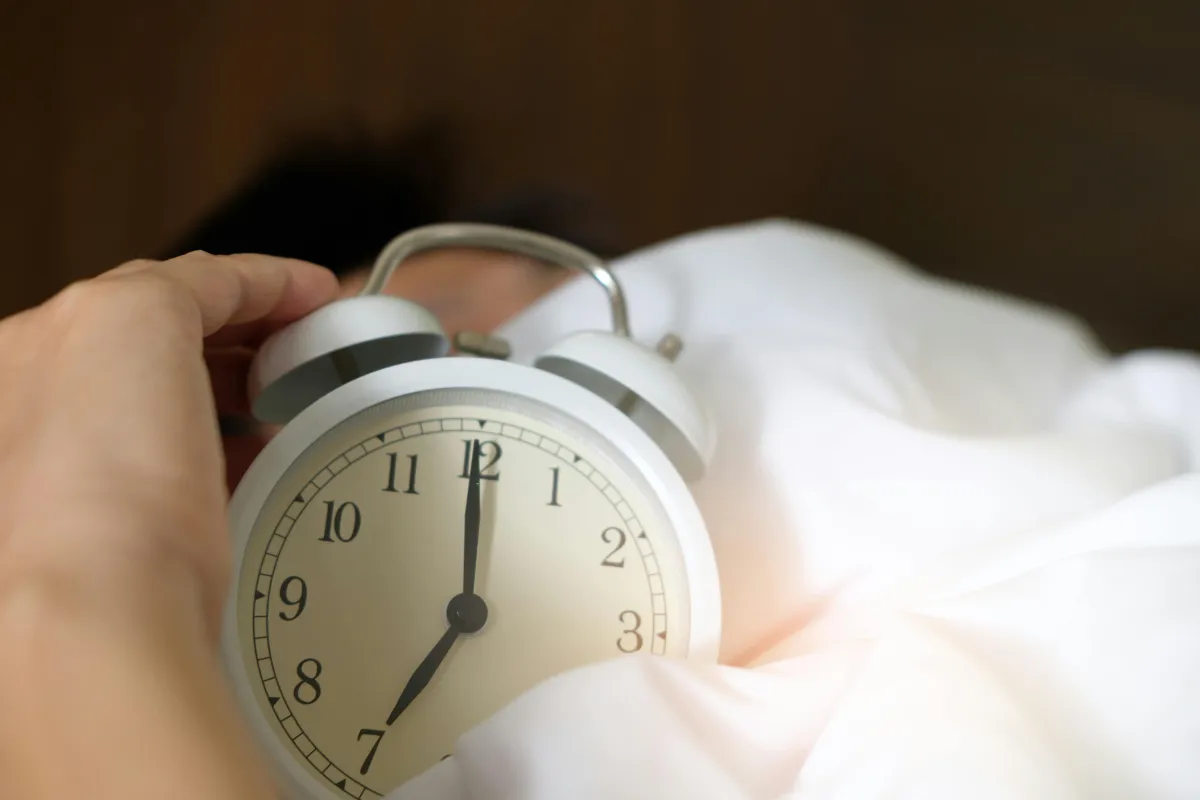karen@mail.karencynowa.com
Blog

Ask a Sleep Expert: How to Get a Good Night’s Sleep During a Move
To get a better understanding of how the moving process can affect a person’s sleep quality, we spoke with Nationally-Board Certified Health & Wellness coach, Kali Patrick. She combines health and wellness coaching with therapeutic applications of yoga/meditation to help stressed-out busy professionals reclaim their sleep, energy, and enthusiasm for life.
Below is a lightly edited transcript of our conversation.
MYMOVE: What are the physical health and wellness benefits of getting a good night’s sleep?
Kali: I’m releasing a book in March, and there’s actually a whole chapter about this, so I’ll give just a few highlights. From a physical perspective, when you sleep well, you decrease your risk of pretty much everything, including premature death. The “everything” includes a lot of illnesses of our time like heart disease, high blood pressure, stroke, obesity, diabetes, and even cancer.
From a well-being perspective, what’s really important about healthy sleep is keeping your immune system functioning optimally. Whether you’re looking to avoid getting sick with any of the various illnesses we have going on (e.g. flu, COVID, etc.), or you’re looking to heal more quickly from something you did catch, sleep is vitally important for a strong immune system.
Kali Patrick | Nationally-Board Certified Health & Wellness coach
“Sleep is also one of those crucial and often missing ingredients from most weight loss programs. Because sleep affects the way various chemicals in our body work, not getting high-quality sleep can create and factor into weight gain as well.”
MYMOVE: Can moving stress disrupt a mover’s sleep schedule?
Kali: It certainly can. When someone is moving, odds are they’re busier than usual. So most people tend to ignore the signals from their mind and their body that they need to stop and take a rest and recover. Most people will respond by trying to power through energy lows and feeling tired.
At nighttime, a mover can find themselves in an environment that is disorganized, or they are simply in new and unfamiliar surroundings. Instead of providing comfort and relief, the environment contributes to the stress one feels.
In addition, your body can be physically tired from moving, but you can feel mentally wired because there’s more than usual to do. People become more prone to waking up in the middle of the night and then thinking about the next thing they have to do.
So yes, moving is a rhythm and routine disrupter, which is really important for healthy sleep. And it increases physical and mental stress too, so it’s a perfect combination of things that can create sleep challenges.
But it’s important to recognize that having disrupted sleep for a short time is totally normal. You’re not in a familiar environment, and there’s a lot going on. When people get into a chronic pattern of poor sleep, it’s often because of how they’re thinking and talking about their experiences. Worrying about a night or two of poor sleep on top of everything else can set you up for more, and then insomnia becomes a self-fulfilling prophecy.
MYMOVE: What would be your recommendations for someone looking to settle down after a stressful day of moving?
Kali: My advice is to first realize that it can take time to adjust to a move. I often see that people are just wanting to get everything done at one time. And that doesn’t allow for any downtime, rest, or relaxation. Rest is a prerequisite for sleeping well–resting and recovering from daily stressors, and really training the mind and the body to let go, which is also what needs to happen at night. I’m a big proponent of “what happens in the day, happens at night.”
As challenging as it can sometimes be, you’re going to have to make some hard and fast priorities. To help, ask yourself, “what do I absolutely need by tomorrow?” So for movers, it might be something like “I need a kitchen for breakfast” or “I need a bed with sheets on it”. And then the next day, it might be time to get your desk or workspace going. Keeping things carved into manageable chunks of work is important.
MYMOVE: What types of activities should people avoid before going to sleep?
Kali: One of my favorites is binge-watching television before bed. We all know that the light from the television screen can negatively affect your sleep and melatonin production. But what most people don’t understand is that the program content itself can be stimulating.
Kali Patrick | Nationally-Board Certified Health & Wellness coach
“Watching something on television like Game of Thrones, or something similarly gory, can be unconsciously overstimulating your nervous system. It engages your “fight or flight” response, and that’s not
going to be good for your sleep. Think of watching television as “recreation”–it’s not the same as true rest.”
The issue of stimulation via content can apply to reading as well. So for example, let’s say that someone is reading a book about a heavy or suspenseful topic before going to bed. This can also affect your sleep because the content of what you’re reading is stimulating your mind and/or your body.
MYMOVE: What are some tips that you have for anyone looking to improve their sleep?
Kali: Well first, you should go out and discuss any possible medical reasons for sleep quality issues with your doctor. There are certain things that are within that scope that need to be treated properly so that the issue can be eliminated.
If you’re all clear there, there’s not usually any one “tip or trick” that’s just going to change everything and rock your world for the rest of your life. You have to consider all the little things that you do during the day that either support your sleep at night or detract from it; and make lifestyle changes one by one.
Try to avoid too much stimulation throughout the day. A lot of little things throughout the day can build up and contribute to a hyper-aroused nervous system. Incorporate time to take care of yourself throughout the day–a twenty-minute break to go for a walk, or sit down, close your eyes, and quiet your mind by focusing on your breath.
Kali Patrick | Nationally-Board Certified Health & Wellness coach
“For someone who’s moving, it’s even more important to quiet things down and then come back to what you were doing. Explore your new neighborhood, hydrate yourself, and make sure you eat well. Prioritize rest and recovery; acknowledge that not everything is going to be 100% perfect right away.”
Key takeaways:
Expect a few nights of disruptive sleep.
Have several moments of relaxation throughout the day.
Set separate times aside for rest and recreation.
Recognize that moving is stressful and that there will be an adjustment period.





